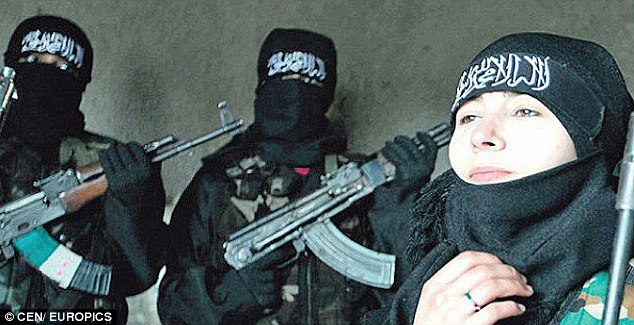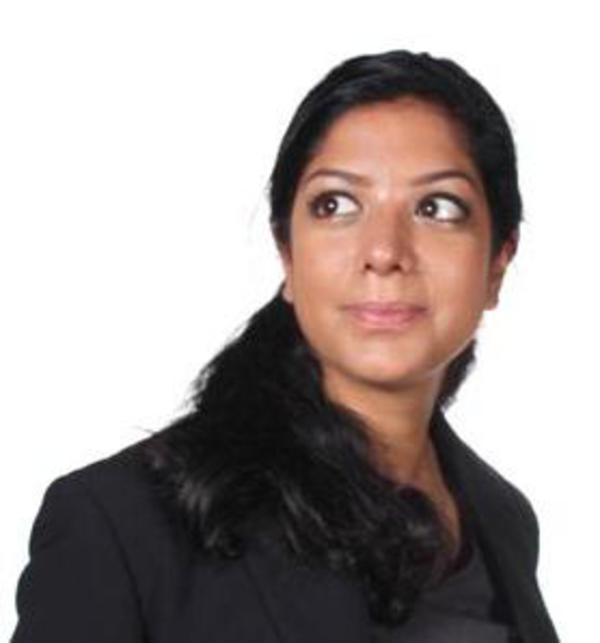Simplistic images of Daesh and of Islam portray the group and the religion as abusive of women—not just their women, but our women. In these simplistic images, women are stereotypically feminine. They are peaceful and nurturing. They would not commit political violence unless some evil people or religion manipulated or forced them.
These images, however, are wildly inaccurate.
I have spent a fair amount of my career researching politically and criminally violent women. I have studied war criminals, murderers, rapists, and ‘terrorists.’ I can tell you that women did not start joining extremist organizations with the rise of Daesh. In fact, compared to some of its predecessors, Daesh continues to hold women to relatively limited roles.
Women are not just recruited into, and fighting within, Islamic organizations, but organizations of all stripes: Christian, Hindu, Buddhist; nationalist, fascist, leftist. Women are not just the ‘brides’ of violent extremism. They are, as often as not, the extremists.
In other words, some people, regardless of religion or ideology, are violent extremists. And women, unsurprisingly to me at least, are people. Women, as people, have choices. Some of them choose to be violent extremists.
Yes, manipulation, social framing, personality, and personal relationships probably play a role in attracting women to Daesh. But so too, probably, does the cause that they will be supporting if they join. The women who join Daesh, like the men who join Daesh, make complicated decisions—even if these are sometimes incomprehensible from the outside.
Read more.
Also see:
Research conducted by terrorism expert Anne Speckhard shows that female terrorists are compelled by many of the same causes as their male counterparts, including conflict-induced trauma, revenge or nationalism, or community outrage. Other drives include feelings of oppression, marginalization, or negative self-identity. Some women turn to violence as a result of their own victimization, with many having witnessed their husbands’ deaths and the abuse and abduction of their children.
The World Health Organization estimates that 35 percent of women globally have experienced sexual or physical abuse, a large proportion occurring during war and civil conflict. These women continue to live with physical and psychological scars that may manifest in vulnerabilities such as isolation, shame and depression, with few resources available to help.
The story of Boumeddiene, one of seven children, abandoned by her father after the death of her mother when she was six, is a familiar one. Though she later converted to Islam, her 2009 “marriage” to Coulibaly in a religious ceremony unrecognized in France—a ceremony which she may have had no control over—is yet another aspect of her story that may have had a profound influence on her role in the planning of the terrorist plot in France.
In a 2013 article for the Daily Beast, terrorism expert Bruce Hoffman argues that individuals who choose violent extremism are almost always “driven by desperation—and [lack of] any viable alternative—to violence against a repressive state, a predatory rival ethnic or nationalist group, or an unresponsive international order.” Women who have already been victimized may see their joining a terrorist cause as an opportunity to retaliate against their victimizer—who in many cases is a member of an opposing ethnic or religious group, or for some a “western hegemony” perceived as the cause of death and great suffering.
Religion can serve as one more justification for the decision to turn to violence—particularly in the case of suicide terrorism, a role women-turned-terrorist often play. This is well documented among more than just those of the Muslim faith. Buddhists in Myanmar and Christians in the Central African Republic all wage war against a religious and ethnic “other.” In fact, it was a female member of the Sri Lankan separatist group, Hindu Liberation Tigers of Tamil Elam, which managed to kill India’s prime minister in a suicide attack in the early ‘90s. And in 2008 Pragya Singh Thakur, an Indian Hindu woman, was accused of orchestrating the Malegaon blasts. All cited religion as the basis for their violent acts.





1 Comment